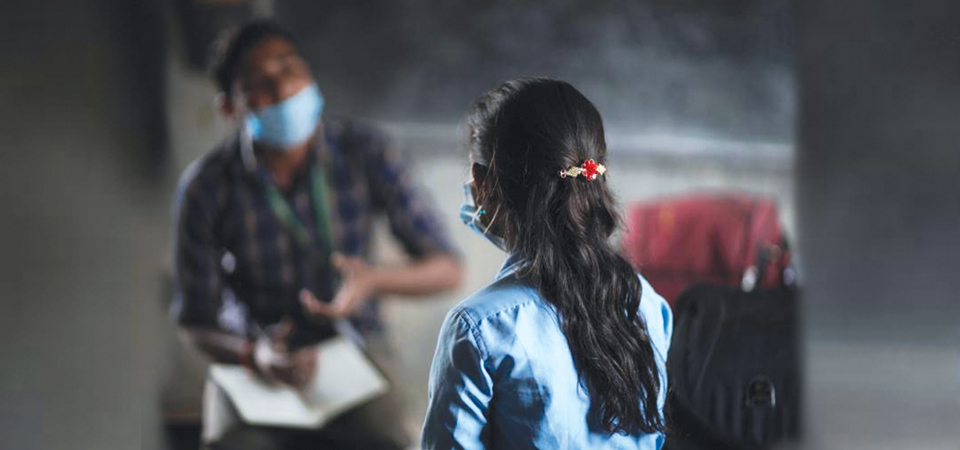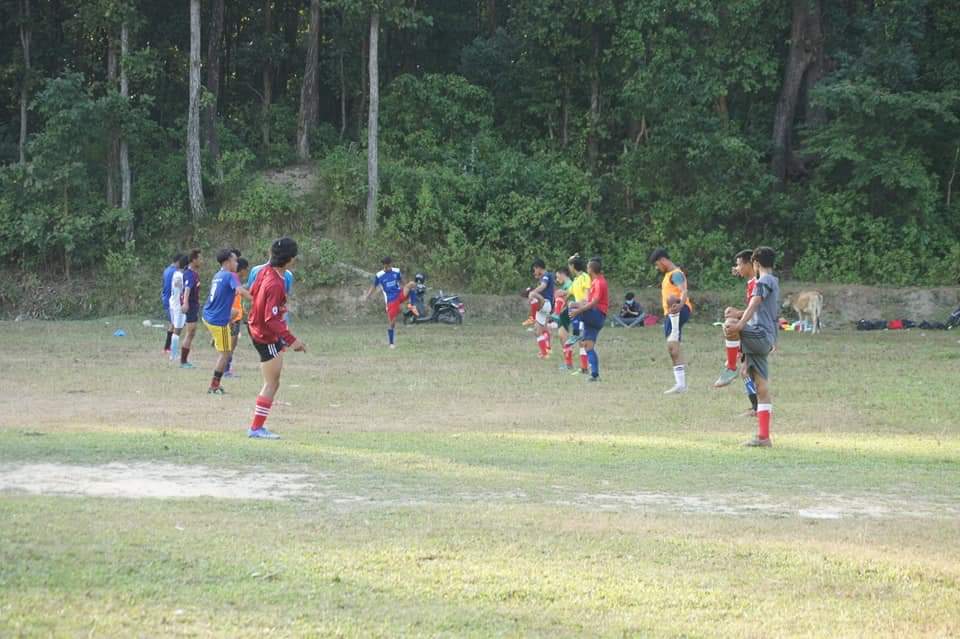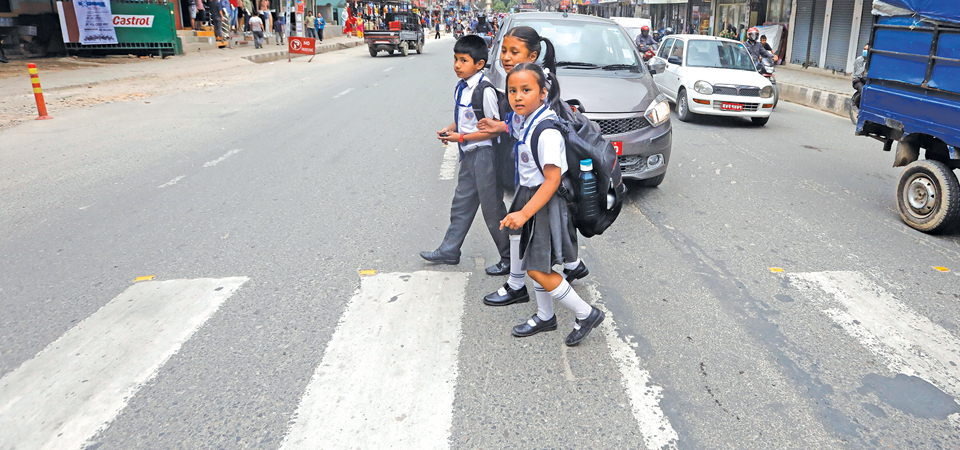Positive way of living can help prevent mental health problems

By Nayak Paudel
Kathmandu, Nov. 24: Mental health issues among children and adolescents have been a major concern globally. The World Health Organisation (WHO) estimates that globally one in seven 10-19-year-olds experience a mental disorder, accounting for 13 per cent of the global burden of disease in this age group.
Depression, anxiety and behavioural disorders are among the leading causes of illness and disability among adolescents.
Mental health experts suggested that quality approach towards children and adolescents alongside teaching them positive ways of living can help prevent the youngsters from
mental health issues.
According to the WHO, 50 per cent of mental health conditions start by the age of 14.
“A number of Nepali children and adolescents are suffering from several mental health issues but least has been done for their treatment and prevention. We still lag to address the problem afflicting the young population,” said Dr. Arun Raj Kunwar, head of child and adolescent psychiatry at Kanti Children’s Hospital.
Kanti Children’s Hospital operates the only fulltime child and adolescent psychiatry clinic in Nepal under a project.
The National Mental Health Survey, Nepal (2020) conducted over 5,888 adolescents aged 13-17 years showed the prevalence of mental disorder among them was 5.2 per cent. It also showed that the frequency of current suicidal thoughts among the adolescents was 3.9 per cent.
“Mental health issues in children aged below 13 years is difficult to identify as they can hardly express their problems. It is why seniors must know the ways of approaching children in a safe and appropriate way,” said Dr. Kunwar.
Meanwhile, according to the United Nations Children Fund (UNICEF), the true burden of mental health disorders among adolescents globally could be direr than estimates suggest.
Experts informed that childhood and adolescence is a time when rapid growth and development take place in the brain due to which they need a quality environment for growing up.
Early negative experiences in homes, schools, or digital spaces, such as exposure to violence, the mental illness of a parent or other caregiver, bullying, reprimanding and poverty increase the risk of mental illness.
“Children and adolescents are in a learning phase and will grasp positive aspects if approached properly by their parents and other caregivers. A child’s healthy development will result in a quality life in the future,” Dr. Kunwar told The Rising Nepal.
The government authorities also informed that they were aware of the quality approach required for children and adolescents and were taking the issue seriously.
“Improving the mental health of children and adolescents is a major concern in the National Mental Health Strategy, 2020. The strategy has plans for generating awareness from the grassroots and increasing treatment facilities for mental health problems of all age group,” said Dr. Phanindra Prasad Baral, chief at NCD and Mental Health Section of the Epidemiology and Disease Control Division (EDCD).
While the government has already been late to address the mental health issues in a serious manner, the process has been affected due to the COVID-19 pandemic. “We must be more efficient to address the mental health problems as the pandemic increased the damage. We must also use technologies like mass media and social media to reach out more population,” stressed Dr. Kunwar.
According to Dr. Baral, the government plans to generate awareness on good behaviour among the children by reaching schools and communities.
“We are also training more health personnel on the ways of addressing mental health problems and their treatment. Suggestions are also being sought from mental health experts regarding the ways to approach the issue in a better way,” said Dr. Baral.
Recent News

Do not make expressions casting dout on election: EC
14 Apr, 2022
CM Bhatta says may New Year 2079 BS inspire positive thinking
14 Apr, 2022
Three new cases, 44 recoveries in 24 hours
14 Apr, 2022
689 climbers of 84 teams so far acquire permits for climbing various peaks this spring season
14 Apr, 2022
How the rising cost of living crisis is impacting Nepal
14 Apr, 2022
US military confirms an interstellar meteor collided with Earth
14 Apr, 2022
Valneva Covid vaccine approved for use in UK
14 Apr, 2022
Chair Prachanda highlights need of unity among Maoist, Communist forces
14 Apr, 2022
Ranbir Kapoor and Alia Bhatt: Bollywood toasts star couple on wedding
14 Apr, 2022
President Bhandari confers decorations (Photo Feature)
14 Apr, 2022











